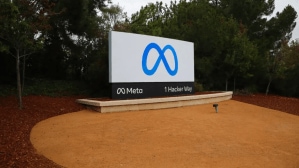We all know that Generative AI is big, but Jeff Maggioncalda, the CEO of Coursera – one of the world’s biggest online course providers – feels that Generative AI is at the pinnacle of human inventions. “In terms of the impact it can have on humanity, I would rate it as high as language, alphabet or writing,” he says. “Like the ability to speak changed the course of human history, so will Generative AI, provided humans master it.” In an interview with FE’s Vikram Chaudhary, he adds that Coursera is now teaching humanity how to navigate the world of Generative AI. Excerpts:
How big is Generative AI? Is it a fad, or is it here to stay?
I think it will become much bigger than it is now. Humanity has had really big inventions – language was one of them, then came writing and the alphabet. I see Generative AI on the same level as language and writing.I think Generative AI will have a huge impact on humanity than any recent major invention – we are yet to see what kind of impact it will have, but one thing is clear, humans have to master Generative AI. If you know how to work with Generative AI, how to use it to your advantage, you will definitely stand out.
And what is Coursera doing in Generative AI?
We have started providing a lot of courses – for example, we have a course for CXOs called ‘Navigating Generative AI: A CEO Playbook’. The aim is to help CXOs avoid being overwhelmed by this massive technological disruption. We also have a detailed course called ‘Navigating Generative AI for Leaders Specialization’ – a kind of an umbrella course on artificial intelligence.
These are massive open online courses (MOOCs), right? But MOOCs have low completion rates…
MOOCs have made learning accessible. You can learn anything, from anywhere, at any time, and at any speed. MOOCs are free, and possibly that’s why people drop out midway. But if you want a certificate, you have to pay, usually a nominal amount, a couple of thousand rupees, and students who pay that amount have really high rates of completion.The highest rates of completion are when MOOCs count as a credit towards a college degree.
How else are you using Gen AI?
We have translated thousands of courses in Hindi using AI. India’s ambition to become a $5-trillion economy depends on its ability to develop a skilled workforce and maximise its demographic dividend. Our goal is to make high-quality education available to everyone, no matter what language they speak. And using the power of AI, we are translating courses into regional languages.
You are the CEO of one of the world’s largest edtech start-ups. What learning set have you developed from the failure (or problems) of Byju’s?
Byju’s isn’t the first to fail, nor will it with be the last. Edtech start-ups do face challenges – even the ones that are highly successful. In 2012, so many edtech start-ups were both – Udacity, Udemy, Coursera, edX, and then Pluralsight a little later and Chegg. All have had their share of problems. It’s really hard to succeed in the K12 education space because the societal benefits of investing in K12 education don’t show up for a long time.
But Byju’s made a lot of acquisitions…
I wouldn’t comment on Byju’s, but you should acquire a company that furthers your business model, and not just for the sake of it. Coursera, for instance, has just done one acquisition – of the Bulgarian start-up Rhyme in 2019, dedicated to creating authoring tools for hands-on, online projects. The aim of this acquisition was to augment the capabilities of Coursera Labs, the platform’s broader initiative to put hands-on projects at the heart of the learning experience.










